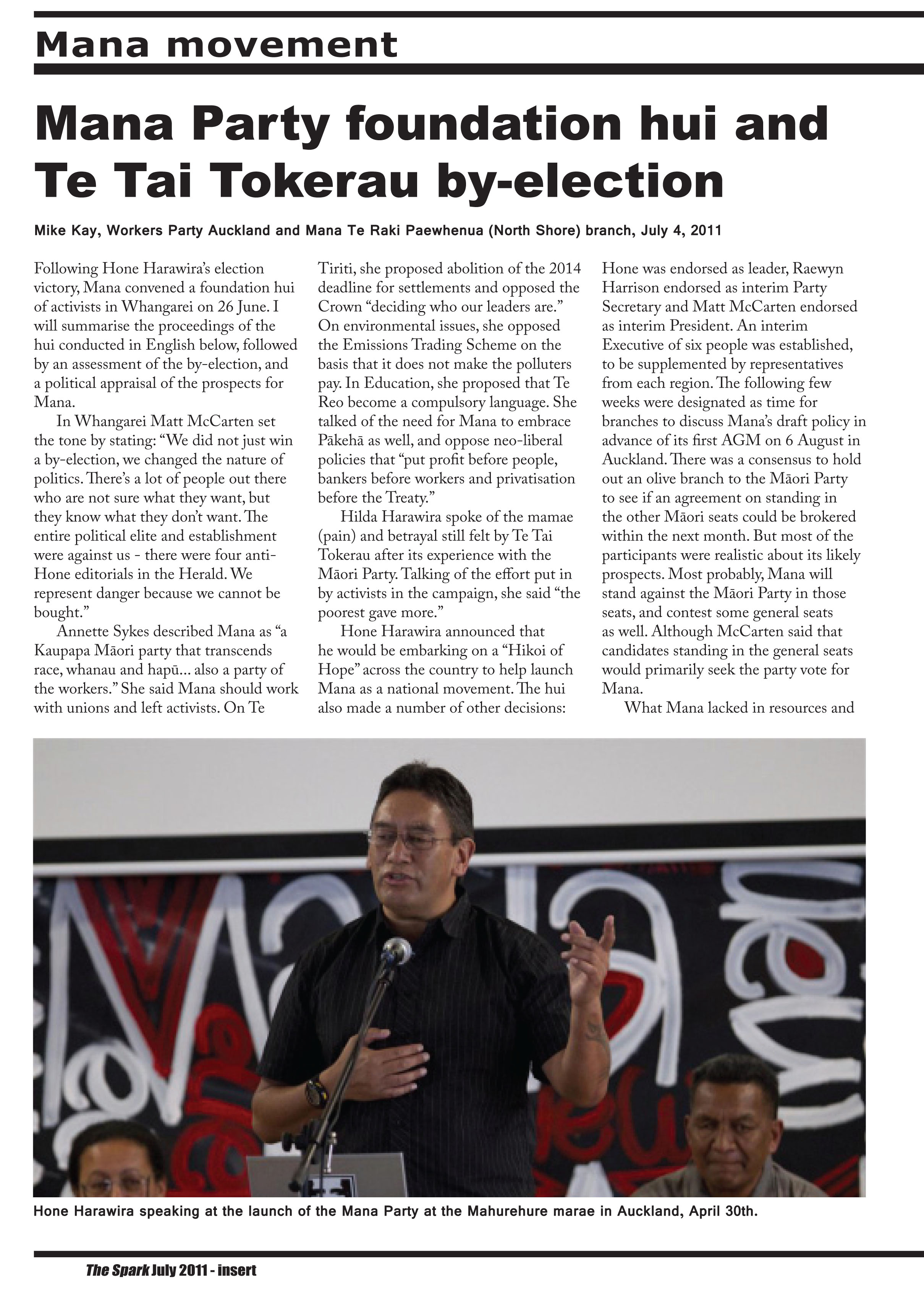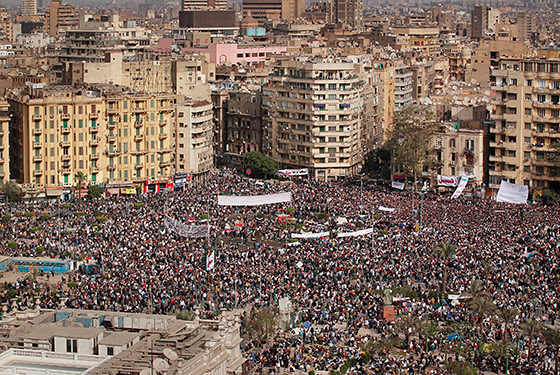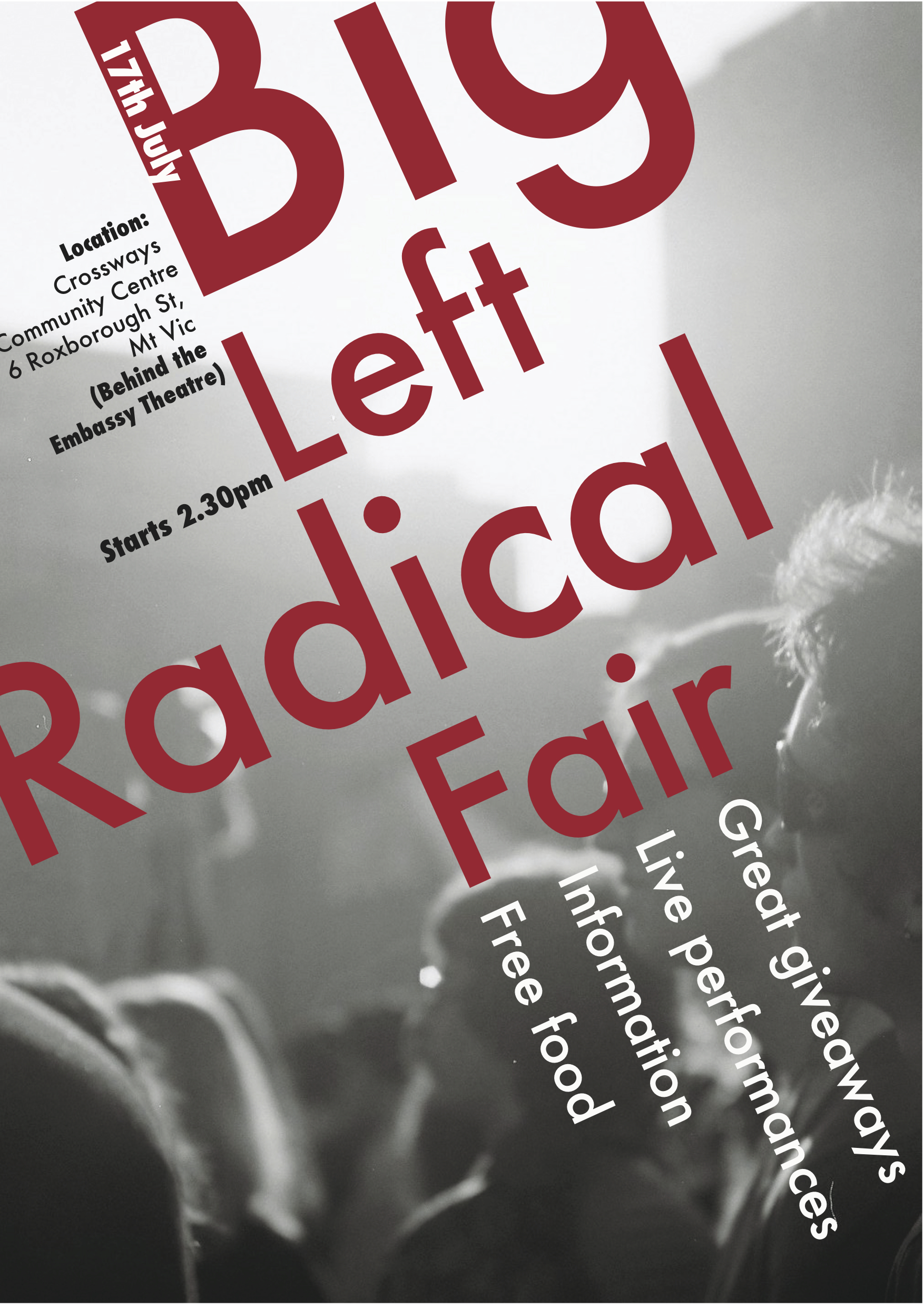On the job: working harder, faster and longer in the fast food sector
This article was first published in the July issue of The Spark . It was contributed by a Christchurch Unite member, Joshua Wood.
. It was contributed by a Christchurch Unite member, Joshua Wood.
In New Zealand we eat from at least one of the nine American fast food corporations that have opened shop here. We have little real choice about whether we want fast food in New Zealand or in our lives, as fast food is now becoming the fastest, largest and in some cases the cheapest food available.
But is working in fast food what the industry makes it out to be? The answer to that is a big fat NO it’s not.
I started my work in hospitality in 2006 in fast food. Moving around from fast food outlet to fast food outlet, one thing I noticed pretty fast is that they all expected the same from you; long hours, fast work, low pay, and a demand for you to come in with little or no notice on your day off or to start hours earlier than you where meant to. Often half an hour or even 10 minutes before you finish you would be asked to stay longer sometimes with no real need for it.
The current hourly rate at the site worked at is $13 a hour, a large majority of fast food outlets make enough to cover wages within seconds of opening the doors. This is because the company’s investment (labour, plant, logistics, and advertising) on producing its commodities for sale is well below the cost at which it sells them. We who make and sell the products see little in return.
Fast food companies say they are poor and cant pay our staff anymore without cutting hours and making products more expensive, but this is obviously not the case.
A message for all you big bosses out there, stop working us harder, longer and faster for the same pay , and to all workers your rights are under attack so stand up fight back and be heard.
Sunday July 17, Auckland contacts meeting
Auckland WP contacts and supporters will be holding a day school/meeting this Sunday in Morningside, Auckland.
Existing members and contacts will be meeting from 10am till 4pm.
Anybody else interested in attending the first part of the day’s activity is welcome to attend to go over a discussion piece from 10am-12 noon. Whilst we do not adhere to all of its content, the discussion will be based on James P. Cannon’s ‘The revolutionary party and its role in the struggle for socialism’ which is viewable here: http://www.marxists.org/archive/cannon/works/1967/party.htm
Please contact Mike Kay on 021-288-5601 for venue details or to see if transport assistance is possible.
The Spark July issue insert – Mana Party foundation hui and Te Tai Tokerau by-election
Access a printable version of The Spark July issue insert. Click here.
This is a recently published version of an article which was previously posted here on this website. Containing minor changes, we are re-publishing it here in a format which supporters may use for distribution.
The Russian Revolution and National Freedom: How the early Soviet government led the struggle for liberation of Russia’s oppressed peoples
The following article, published on November 1, 2006, was written by John Riddell, then a co-editor of the now ceased Socialist Voicewhich was produced in Canada. We are publishing it in two parts. Part one, here, appeared in the July issue of The Spark and part two will appear in the August issue.
When Bolivian President Evo Morales formally opened his country’s Constituent Assembly on August 6, 2006,

he highlighted the aspirations of Bolivia’s indigenous majority as the central challenge before the gathering. The convening of the Assembly, he said, represented a “historic moment to refound our dearly beloved homeland Bolivia.” When Bolivia was created, in 1825-26, “the originary indigenous movements” who had fought for independence “were excluded,” and subsequently were discriminated against and looked down upon. But the “great day has arrived today … for the originary indigenous peoples.” (http://boliviarising.blogspot.com/1, Aug. 14, 2006)
During the preceding weeks, indigenous organizations had proposed sweeping measures to assure their rights, including guarantees for their languages, autonomy for indigenous regions, and respect for indigenous culture and political traditions.
This movement extends far beyond Bolivia. Massive struggles based on indigenous peoples have shaken Ecuador and Peru, and the reverberations are felt across the Western Hemisphere. Measures to empower indigenous minorities are among the most prestigious achievements of the Bolivarian movement in Venezuela.
At first glance, these indigenous struggles bear characteristic features of national movements, aimed at combating oppression, securing control of national communities, and protecting national culture. Yet indigenous peoples in Bolivia and elsewhere may not meet many of the objective criteria Marxists have often used to define a nation, such as a common language and a national territory, and they are not demanding a separate state. Continue reading “The Russian Revolution and National Freedom: How the early Soviet government led the struggle for liberation of Russia’s oppressed peoples”
Mana Party foundation hui and Te Tai Tokerau bye-election
Mike Kay, Workers Party Auckland and Mana Te Raki Paewhenua (North Shore) branch
Following Hone Harawira’s election victory, Mana convened a foundation hui of activists in Whangarei on 26 June. I will summarise the proceedings of the hui conducted in English below, followed by an assessment of the bye-election, and a political appraisal of the prospects for Mana.
In Whangarei Matt McCarten set the tone by stating: “We did not just win a bye-election, we changed the nature of politics. There’s a lot of people out there who are not sure what they want, but they know what they don’t want. The entire political elite and establishment were against us – there were four anti-Hone editorials in the Herald. We represent danger because we cannot be bought.”
Annette Sykes described Mana as “a Kaupapa Māori party that transcends race, whanau and hapū… also a party of the workers.” She said Mana should work with unions and left activists. On Te Tiriti, she proposed abolition of the 2014 deadline for settlements and opposed the Crown “deciding who our leaders are.” On environmental issues, she opposed the Emissions Trading Scheme on the basis that it does not make the polluters pay. In Education, she proposed that Te Reo become a compulsory language. She talked of the need for Mana to embrace Pākehā as well, and oppose neo-liberal policies that “put profit before people, bankers before workers and privatisation before the Treaty.” Continue reading “Mana Party foundation hui and Te Tai Tokerau bye-election”
New Zealand state continues to bully Fiji
The following, by Byron Clark, was first published in the July issue of The Spark
“Can we manage the tensions between Fiji and Tonga?” that was the question posed in the press release promoting the interview journalist Guyon Espiner was conducting with Foreign Affairs Minister Murray McCully on the June 12 episode of TVNZ’s Q&A. The question is loaded with political assumptions; first of all the term ‘we’ assumes that there is some universal ‘New Zealand interest’ shared by both the audience of Q&A, and those that McCully and the government he is part of represent. Second, it is assumed that ‘we’ have the right to intervene with the affairs of two other sovereign nations.
The diplomatic dispute between Fiji and Tonga began when Tonga granted citizenship to Tevita Mara after he fled Fiji. Mara was the Army Chief of Staff -the fourth highest position in the Fijian military- and controlled an infantry of approximately 500 soldiers. In May he was charged with mutiny and accused of attempting to overthrow the government. He has been declared a fugitive under Fiji’s Extradition Act. Continue reading “New Zealand state continues to bully Fiji”
The Arab Spring: A new future for North Africa and the Middle East
The following is by Josh Glue, a Workers Party member in Hamilton, and was first published in the July issue of The Spark. It is adapted from a presentation given by Josh for the pannel discussion – the international situation– at the national conference of the Workers Party, Workers Power 2011, held over Queens Birthday weekend.

Situation
Since the beginning of 2011, protests, uprisings and revolt have rocked the Middle East, from Tunisia to Egypt, from Algeria to Libya, Syria to Bahrain. Working people, as well as students, activists and professionals, have risen to demand democracy, often challenging decades of dictatorial rule from corrupt governments backed by Western imperialism and funded by oil wealth.
Protesting against crippling unemployment, systemic government corruption, rising food prices, and brutal repression, the people have spoken out for control over their lives, in many cases facing harsh state violence for standing up for their rights. Continue reading “The Arab Spring: A new future for North Africa and the Middle East”
Post offices and Kiwibank outlets under attack
The following article was first published as a guest contribution to the July issue of The Spark, by trade unionist and Alliance Party co-leader Victor Billot. Billot is also spokesperson for the campaign to Save Dunedin Metro Post Shop and Kiwibank.
New Zealand Post are closing and downgrading a number of post offices around New Zealand, including Kiwibank outlets. One of these is the Dunedin Metro Post Shop and Kiwibank, in the Exchange, Dunedin’s central business district. Another nearby suburban post agency in Mornington was recently closed as well. A community campaign was mounted to stop the closure in Dunedin. It has been an interesting campaign. The users of the post office are a diverse mix, ranging from business people and conservative professionals, office workers, unionists, all the way through to parents, beneficiaries and the elderly. However most people have come to similar conclusions as to why they are opposed to the closure.
They see the decision as being made by remote managers, with little concern or understanding of local communities. People were angered at the lack of interest from NZ Post, and how the closure would create problems for them. The Post Shops that local people will now have to use are already crowded and busy. Continue reading “Post offices and Kiwibank outlets under attack”
Greenpeace loses battle for charity status

By Alastair Reith
A recent High Court decision has stripped Greenpeace New Zealand of its charity status in this country. The court upheld a 2010 ruling by the Charities Commission that the environmentalist organization is “too political” to be classed as a charity. Greenpeace is challenging the decision. The Commission argued that calls by Greenpeace for peace and disarmament could not be classed as charitable and were political in nature, and that while Greenpeace does not openly advocate breaking the law its members have been involved in illegal protest activity. Greenpeace Executive Director Bunny McDiarmid disputed this, arguing that, “Most of the charities that have got charitable status are very much engaged in change they want to see, positive change for our society today.”
This decision will deal a serious blow to Greenpeace. Apart from the mainstream legitimacy that comes from being registered as a charity, registered groups do not have to pay income tax, and people who choose to donate to them receive their money back in tax rebates. Losing charity status will cost Greenpeace a lot of money in the years ahead, and will discourage those on low incomes from donating. Continue reading “Greenpeace loses battle for charity status”

